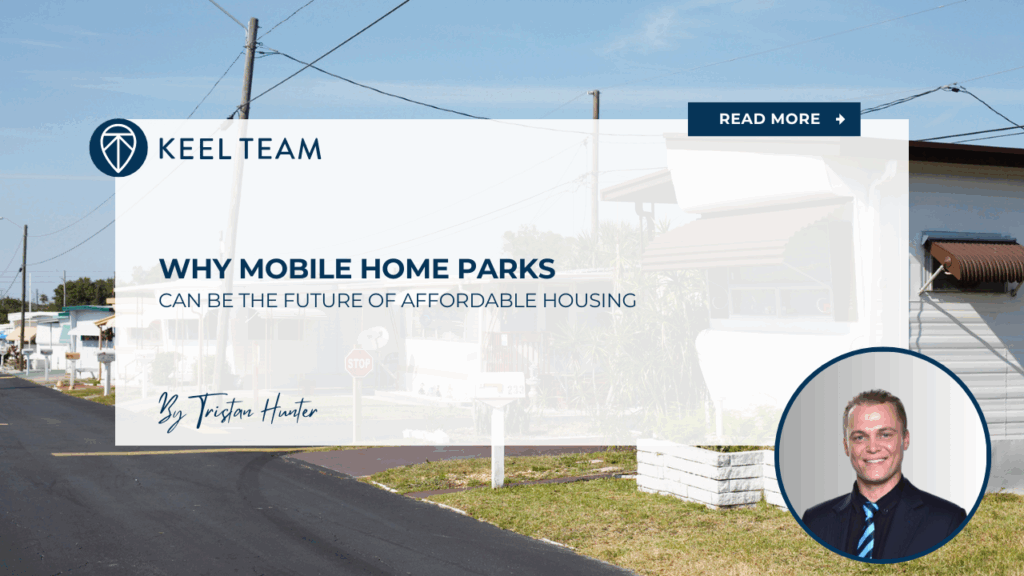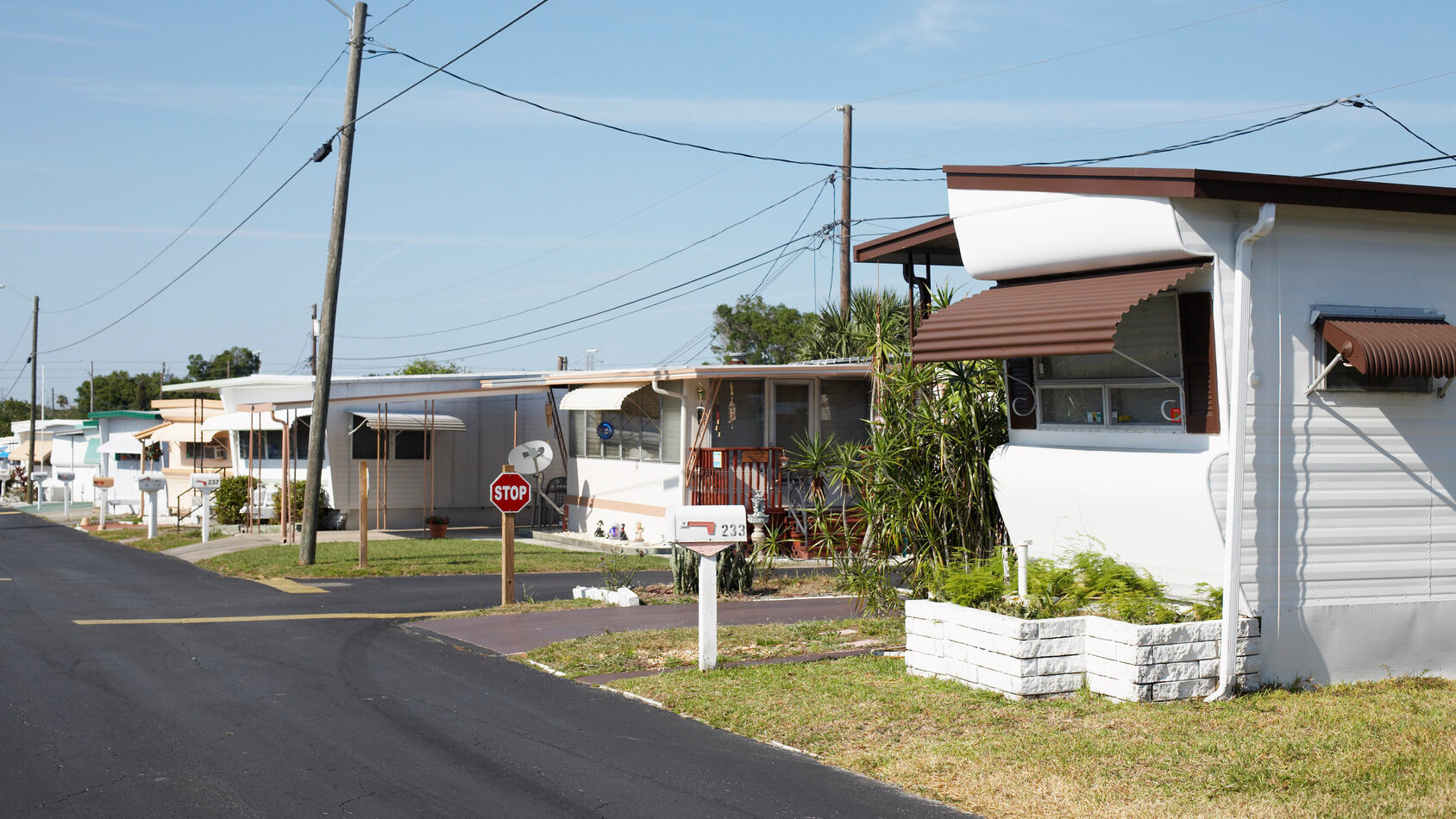Why Mobile Home Parks Can Be the Future of Affordable Housing
-
 Tristan Hunter - Investor Relations
Tristan Hunter - Investor Relations

The affordable housing crisis grips many communities, with skyrocketing home prices and limited affordable options pushing families to seek alternatives. Mobile home parks may offer a compelling solution, blending affordability, flexibility, and community living. By addressing housing shortages and providing cost-effective living, mobile home parks could reshape how we think about accessible housing. This article explores why mobile home parks may hold the key to tackling the affordability crisis, their benefits, challenges, and their potential role in the future.
The Growing Affordable Housing Shortage
A Nationwide Challenge
Across the United States, housing shortages drive up costs, making homeownership and renting increasingly unattainable. According to the National Low Income Housing Coalition, no state offers enough affordable housing for low-income renters. This gap leaves millions struggling to find stable, budget-friendly homes. Mobile home parks may step in to fill this void, offering an alternative that sidesteps the high costs of traditional housing.
Why Traditional Housing Falls Short
Building new homes takes time, money, and land resources, often in short supply. Urban areas face zoning restrictions, while rural regions may lack infrastructure. Consequently, supply can’t keep up with demand, and prices soar. Mobile home parks, however, may require less land and infrastructure, allowing quicker development and lower costs. This flexibility makes them a practical option for addressing housing shortages.
Download our FREE eBook on the Top 20 things to know BEFORE investing in mobile home parks!
How Mobile Home Parks Can Offer Cost-Effective Living
Lower Upfront Costs
Mobile homes typically cost far less than traditional houses. According to the U.S. Census Bureau, the average price of a new mobile home in 2023 was around $87,000, compared to over $400,000 for a site-built home. Residents in mobile home parks often own their homes and rent the lot, which may significantly reduce monthly expenses compared to mortgage payments or apartment rents.
Affordable Lot Rentals
Lot rents in mobile home parks often range from $300 to $800 per month, depending on location and amenities, according to industry reports. This is frequently lower than apartment rents in similar areas. Additionally, residents avoid property taxes and maintenance costs associated with traditional homeownership, making mobile home parks a budget-friendly choice for many.
Energy Efficiency and Low Maintenance
Modern mobile homes often feature energy-efficient designs, such as improved insulation and compact layouts, which may lower utility bills. Moreover, their smaller size reduces maintenance costs. For retirees, young families, or low-income households, these savings can make a significant difference, further cementing mobile home parks as a cost-effective housing option.
Addressing Affordable Housing Shortages with Mobile Home Parks
Scalability and Speed
Unlike traditional housing developments, mobile home parks may be established relatively quickly. Developers can set up communities on smaller parcels of land, bypassing some of the zoning hurdles that delay larger projects. This scalability allows mobile home parks to respond swiftly to local housing needs, potentially easing shortages in underserved areas.
Flexible Locations
Mobile home parks can thrive in both urban and rural settings. In cities, they may utilize underused lots, while in rural areas, they can provide housing where traditional developments are impractical. This adaptability ensures mobile home parks can serve diverse communities, from growing suburbs to remote regions, helping address housing shortages wherever they arise.
Supporting Diverse Demographics
Mobile home parks attract a wide range of residents, including young professionals, retirees, and low-income families. By offering affordable housing options, they may help stabilize communities, reduce homelessness, and provide a stepping stone for those saving for future homeownership. This inclusivity strengthens their role in tackling housing challenges.
The Community Advantage of Mobile Home Parks
Fostering a Sense of Belonging
Mobile home parks often cultivate tight-knit communities. Shared amenities like playgrounds, community centers, or picnic areas encourage interaction among residents. For many, this sense of belonging enhances the appeal of mobile home park living, making it more than just an affordable option—it’s a lifestyle choice.
Opportunities for Resident Engagement
Many mobile home parks organize events, such as holiday celebrations or game nights, to bring residents together. These activities may boost resident satisfaction and retention, creating stable communities. A strong community can also reduce turnover, benefiting both residents and owners.
Challenges Mobile Home Parks May Face
Perception and Stigma
Despite their benefits, mobile home parks sometimes carry a negative stigma, often tied to outdated stereotypes about quality or safety. However, modern mobile home parks frequently offer well-maintained homes and amenities that rival traditional neighborhoods. Overcoming this perception through education and marketing may be key to their wider acceptance.
Rising Lot Rents
In some areas, lot rents in mobile home parks have increased, driven by demand or corporate ownership. This trend could undermine affordability if not managed carefully. Transparent pricing and resident protections, such as rent control measures, may help ensure mobile home parks remain a viable option.
Infrastructure and Maintenance
Older mobile home parks may face challenges with aging infrastructure, such as outdated utilities or roads. Upgrading these systems requires investment, which could raise costs for residents. Proactive maintenance and modernization efforts may be essential to sustaining affordability and livability.

The Future Potential of Mobile Home Parks and Affordable Housing
Innovations in Mobile Home Design
Advancements in mobile home construction, such as modular designs and eco-friendly materials, may enhance their appeal. These innovations could improve durability, aesthetics, and energy efficiency, making mobile home parks even more attractive to cost-conscious buyers.
Policy Support for Affordable Housing
Government initiatives, such as grants for mobile home park development or zoning reforms, could accelerate their growth. By prioritizing mobile home parks in housing policies, lawmakers may help expand access to affordable homes, particularly in high-cost regions.
A Shift Toward Luxury Mobile Home Parks
Some mobile home parks now cater to upscale markets, offering resort-style amenities like pools, fitness centers, and gated entrances. This trend may broaden their appeal, attracting higher-income residents while maintaining affordability for others. As these “luxury” mobile home parks gain traction, they could reshape public perceptions and drive demand.
Why Mobile Home Parks Matter Now
Meeting Immediate Needs
With housing costs continuing to rise, mobile home parks may provide an immediate solution for those priced out of traditional markets. Their affordability and accessibility make them a practical choice for addressing today’s housing challenges.
A Sustainable Housing Model
Mobile home parks may offer a sustainable approach to housing by maximizing land use and minimizing environmental impact. Their smaller footprint and potential for energy-efficient designs align with growing demands for eco-conscious living.
Empowering Communities
By fostering inclusive, affordable communities, mobile home parks may empower residents to build stable, fulfilling lives. This empowerment could have ripple effects, strengthening local economies and reducing housing insecurity.
Conclusion: A Promising Path Forward for Affordable Housing
Mobile home parks may hold immense potential as a solution to the affordable housing crisis. By offering cost-effective living, addressing housing shortages, and fostering vibrant communities, they could play a pivotal role in shaping the future of housing. While challenges like stigma and rising costs remain, innovations, policy support, and a focus on resident satisfaction may help mobile home parks thrive. As more people discover their benefits, mobile home parks could become a cornerstone of accessible, sustainable housing for generations to come.
Are you looking for MORE information? Book a 1-on-1 consultation with Andrew Keel to discuss:
- A mobile home park deal review
- Due diligence questions
- How to raise capital from investors
- Mistakes to avoid, and more!
Disclaimer:
The information provided is for informational purposes only and is not investment advice or a guarantee of any kind. We do not guarantee profitability. Make investment decisions based on your research and consult registered financial and legal professionals. We are not registered financial or legal professionals and do not provide personalized investment recommendations.

Tristan Hunter - Investor Relations
View The Previous or Next Post
Subscribe Below 👇





